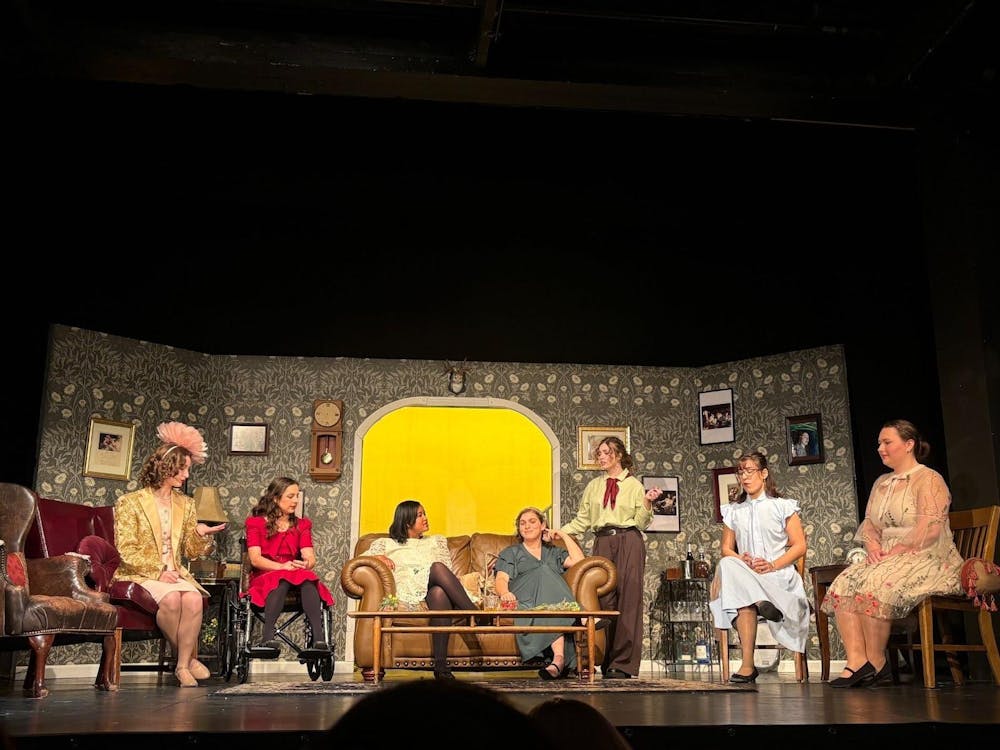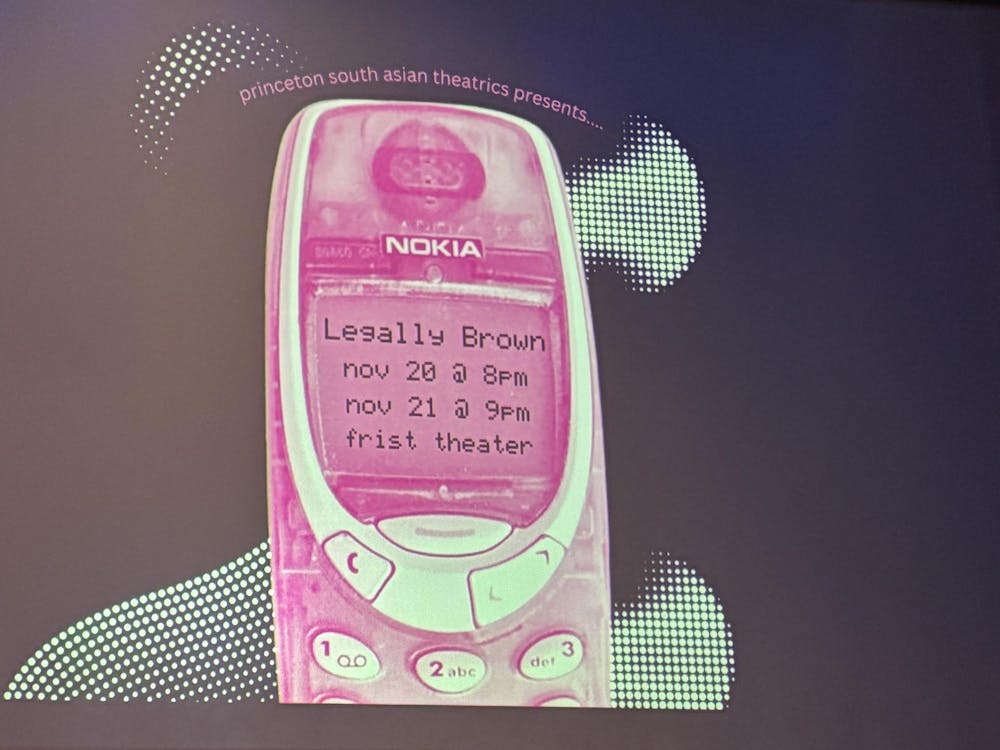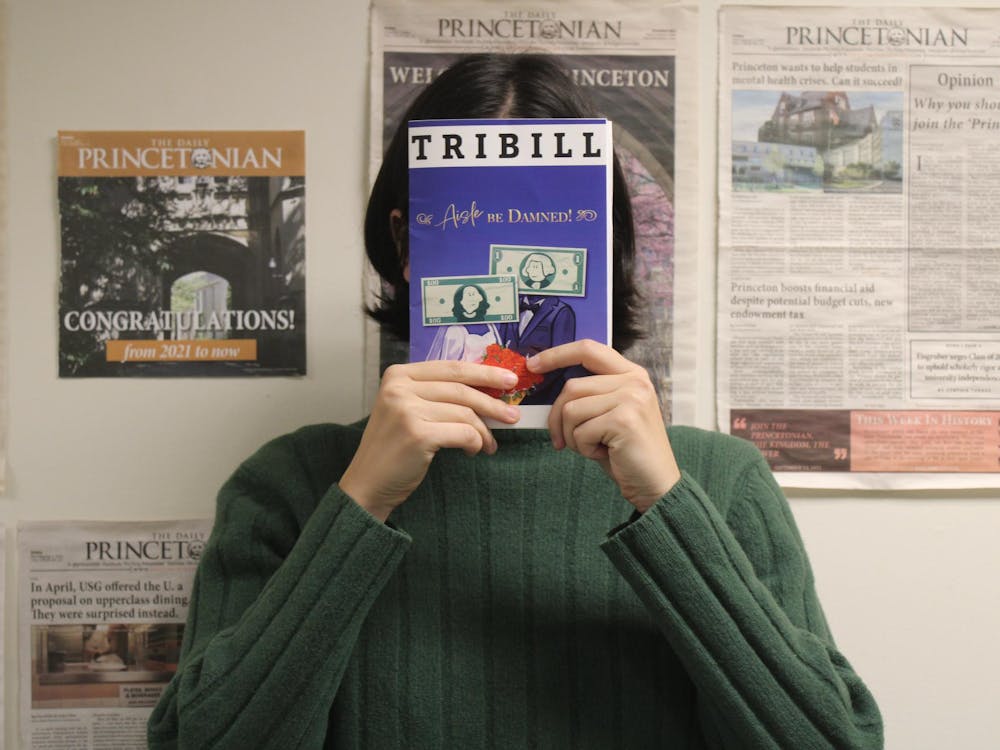How far into the present does the past reach? Princeton Chinese Theatre’s “I Myself He Himself,” written by Stan Lai, explores this question with the lives of two successful businesspeople, Jian Rujing and Chen Mo. Rujing works as an executive officer in her father’s company, while Mo serves on the board of directors in his firm. Although they shared a brief but passionate love affair when they were nine years younger, they meet as strangers in the present day to negotiate a deal for their two companies. Directed by Tianlong Wang GS and Jenny Guo GS and including English subtitles, this play explores the ramifications of people’s shared histories and the themes of regret and betrayal, demonstrating how the ghosts of the past affect the lives of the present.
While the play’s title may seem confusing at first, its meaning soon becomes clear after the opening scene: “Myself” and “Himself” refer to the main characters’ lives of nine years ago. This play humorouslyintroduces the audience to Young Rujing (Stella Ma ’16) and Young Mo (XuLing Hu ’16), who cause all sorts of mischief with their present selves (Jia Ning Cheng ’17 and Boyang Song GS respectively) because they do not recognize their more youthful versions. However, the real reason for their presence is much more serious — both Rujing and Mo are haunted by memories of the past that they have sworn to forget. As their worlds swirl around them furiously and eventually collide, everything that they hold dear to them starts to slip away.
Cheng as the present day Rujing makes an especially powerful performance. Rujing finds herself torn between loyalty to her father and her father’s wishes for their company, as well as her own needs. For this reason, she struggles to lead the company: Due to conflict among her own desires, her father’s orders and schemers beyond her control, she soon breaks down from the stress of trying to handle it all. A confrontation with Mo only exacerbates her condition. Cheng shows Rujing's transition from cracked to broken as a gradual but ultimately inevitable process. Song also gives a strong performance as Mo, who has unsuccessfully tried to fill the void left in his life by Rujing’s parting for nine long, painful years. Chong Gu ’16 provides laughs in his roles as a train conductor, waiter and habitual drunk, who insists that it is always September — a clever pun on the Chinese word for wine.
The use of music and light is excellent in “I Myself He Himself.” During flashbacks, the crew imbues the stage with a deep blue light, evoking the melancholic nostalgia of bygone days. During dream sequences, blue light emphasizes sadness and longing. For instance, when Young Rujing and Young Mo see each other for the first time in the present after nine years of searching — while their actual selves remain oblivious of their interaction — the stage is suddenly flooded with blue. The lighting emphasizes just how important this initial meeting is to the continuing interactions of Rujing and Mo. Music also takes an integral role in this play. During transitions between scenes, the audience hears both classical piano music and jazzy tunes, depending on the tone of the scenes. This music effectively sets the mood for the play, allowing the audience to reflect more on Rujing and Mo’s interactions. One poignantly apt use of music is the playing of Rachmaninoff’s mournful “Vocalise” as Rujing and Mo discuss the single most catastrophic event that doomed their relationship. Thanks to music and sound managers Rui Wu and Luyu Cheng ’16, the music and the light together create the movingly tragic atmosphere that is so elemental to this play’s success.
In addition, the play makes good use of set and props. Instead of cluttering the stage, PCT has decided to rely on a few choice props: beds, desks, chairs and telephones. A recurring symbol in “I Myself He Himself” is doorways as transitions. Characters step through doorways and into other characters’ lives, both on a spiritual and a physical level. There is nothing ornate about the doorway itself — it is nothing more than a metal rectangle — yet whenever someone crosses the threshold, the audience senses that whatever transpires next will profoundly affect that scene of the play. Rujing and Mo meet their past selves as they walk in through these doors, and they confront each other after they each pass through their closed doors. Subtle hints like this make PCT’s interpretation of this play an impressive performance.
“I Myself He Himself” asks the audience to think about how decisions people make affect their lives, but it also explores how much factors outside of their control influence people’s lives. From the first conversations that Rujing and Mo have with their past selves to the show’s satisfying conclusion, “I Myself He Himself” spins a heart-wrenching tale of love, loss and loyalty.
5 out of 5 paws

Pros: Strong acting; thoughtful set; especially well-planned music.
Cons: None.








